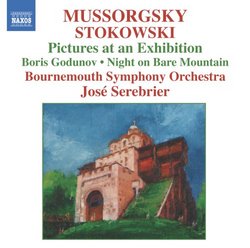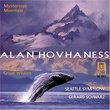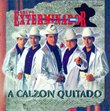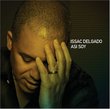| All Artists: Modest Mussorgsky, Leopold Stokowski, Pyotr Il'yich Tchaikovsky, José Serebrier, Bournemouth Symphony Orchestra Title: Mussorgsky-Stokowski: Pictures at an Exhibition Members Wishing: 0 Total Copies: 0 Label: Naxos Original Release Date: 1/1/2005 Re-Release Date: 6/21/2005 Genres: Pop, Classical Styles: Vocal Pop, Opera & Classical Vocal, Forms & Genres, Theatrical, Incidental & Program Music, Historical Periods, Modern, 20th, & 21st Century, Symphonies Number of Discs: 1 SwapaCD Credits: 1 UPC: 747313264520 |
Search - Modest Mussorgsky, Leopold Stokowski, Pyotr Il'yich Tchaikovsky :: Mussorgsky-Stokowski: Pictures at an Exhibition
 | Modest Mussorgsky, Leopold Stokowski, Pyotr Il'yich Tchaikovsky Mussorgsky-Stokowski: Pictures at an Exhibition Genres: Pop, Classical
|
Larger Image |
CD DetailsSimilar CDs
|
CD ReviewsThe Lush Stokowski Sound Lives Again J Scott Morrison | Middlebury VT, USA | 06/24/2005 (5 out of 5 stars) "There will be pecksniffs who decry this issue of orchestral transcriptions by Leopold Stokowski. One suspects many of them will probably secretly listen to it and love it, although they wouldn't admit it publicly. It is fashionable these days to hew to the purist line about a composer's original intentions and all that. And, of course, that proscribes such crass things as richly romantic orchestrations of piano music or performances of 'opera without words,' both of which are featured here. Never mind. There are those of us who revel in these things when they are done well, and this issue is heaven-sent for us (and for the hypocrites who claim not to like such things). Stokowski made over 200 orchestral transcriptions and they often were featured on his programs with the Philadelphia Orchestra during his tenure as its music director (1912-1938). His audiences loved them. During his lifetime he was generally the only conductor who performed them, but since his death they have been heard more often in orchestral programs and recordings. This CD was done under the auspices of the Leopold Stokowski Society. The first of the 'symphonic transcriptions' featured on this CD is Mussorgsky's 'Night on Bare Mountain' in the version made famous by its appearance in Disney's 'Fantasia.' Slightly shorter than Mussorgsky's original, it remains fairly close to Mussorgsky's own orchestration. And it is played beautifully here by José Serebrier and the Bournemouth Symphony. Serebrier was, for a time, Stokowski's assistant during Stoky's tenure with the American Symphony Orchestra and he certainly absorbed the maestro's approach. (One wonders if he had the BSO strings use free, rather than synchronized, bowing as Stoky did with his Philadelphians.) The two of them together conducted the world première of Charles Ives's Fourth Symphony with the orchestra in 1965. Following 'Bare Mountain' is the five-minute-long Entr'acte from Mussorgky's opera, 'Khovanshchina,' a funereal orchestral interlude that accompanies the journey of the opera's hero to his execution. It is extremely in moving in the way that only Russian elegiac music can be. Next is, for me, one of the real highlights of this disc, Stokowski's orchestral synthesis of passages from 'Boris Godunov,' the opera he had been the first to do in the US in its original Mussorgsky orchestration in 1929. It captures, in about twenty-five minutes, the dramatic arc of the opera and the orchestration is much more like that of Mussorgsky than of the then more-familiar Rimsky version. 'Boris' is followed by Stoky's orchestral transcription of 'Pictures at an Exhibition.' Of course, the most famous version is that done by Ravel at the behest of Serge Koussevitzky in 1922. Stokowski made his version in 1939 and it sounds to me more like the piano original (and more like Mussorgsky's own orchestrations of other works). It eliminates two movements -- 'Tuileries' and 'The Marketplace at Limoges'; Stokowski felt they were too 'French' and that they may have actually been written by Rimsky Korsakoff. (There is no evidence to support that notion, though.) In a word, Stokowski's 'Pictures' is more bumptious than Ravel's. The disc is rounded out by one original Stoky piece -- 'Traditional Slavic Christmas Music' -- and orchestrations of two short Tchaikovsky pieces. The former is orchestrated as if for the organ, with sonorous basses supporting rich wind, brass and string choir chordal writing. Sumptuous! Tchaikovsky's piano piece, 'Humoresque,' Op. 10, No. 2, is a Slavic romp. Those not familiar with the piano version will nonetheless recognize the main melody because it features prominently in Stravinsky's own recasting of Tchaikovsky piano music in his ballet 'Le Baiser de la Fée' ('The Fairy's Kiss'). Stoky gave a new title to his orchestration of Tchaikovsky's excruciatingly melancholy song, Op. 73, No. 6 (entitled 'Again, as Before, Alone' by the composer); he called it simply 'Solitude.' [The track listing on the jewel box card reverses these two pieces.] This, then, is an entirely enjoyable outing by Serebrier and the Bournemouth. And if I'm intuiting correctly, I think there will be more issues in what could become a series of releases of Stokowski orchestrations by these forces. One hopes that will be the case. Recommended. TT=76:48 Scott Morrison" Leopold, Leopold, Leopold Timothy Kearney | Hull, MA United States | 10/19/2005 (4 out of 5 stars) "One of my favorite episodes of BUGS BUNNY (perhaps my only favorite, I was never a big LOONEY TOONS fan) has Bugs getting in trouble while singing the song "April Showers" in the presence of an opera star. The man finds the rabbit annoying, and Bugs being Bugs decides to get the best of him. On an evening when the buffoon is singing, Bugs dons a wig that resembles the hair style of a great conductor, a caricature of Leopold Stokowski. As soon as Bugs enters the area everyone is all a buzz because Leopold has arrived. Bugs grabs the baton and begins conducting. I was probably twelve or thirteen at the time, and I felt rather sophisticated because I knew who Leopold was other than one of the husbands of Gloria Vanderbilt. Stokowski was one of the most famous conductors of his day, and he was a well known musical arranger as well. His day was a time when symphony orchestras had regular arrangers who transcribed famous keyboard pieces for orchestra. They somewhat fell out of fashion in the 1970's but today there seems to be a renewed interest in some of transcriptions, recognizing the contributions of the musical arrangers. This release by Naxos has some of Stokowski's arrangements of some of Mussorgsky's music as well as a few pieces by Tchaikovsky and an arrangement of Slavic Christmas music. Overall, this is an interesting disc. The arrangement of "Night on Bald Mountain" is not as fulsome as the more familiar Rimsky-Korsakov orchestration, but the differences in the two do illustrate the interesting tidbits on the score. The same can be said for his orchestration of "Pictures at an Exhibition." The Ravel orchestration, today's performance standard, has more power, and perhaps because of its familiarity more of an appeal, but some of Stokowski's arrangements have a smoother sound which seems to be in keeping with an art gallery exhibit. His orchestral arrangement of music from BORIS GODUNOV plays like a symphonic poem and does capture the mood of the work. Listeners will find this recording both interesting, enjoyable, and since the "Bald Mountain" arrangement is the same as the arrangement used in FANTASIA, perhaps a bit nostalgic. It will also give people a new appreciation of Mussorgsky as a composer. Maybe Naxos can release another Stokowski transcription disc with his arrangements of Bach's music. " A Naxos Triumph! vmzfla | Orlando, Fl. | 10/25/2005 (5 out of 5 stars) "For half the price of at least two competing labels that I know of, you can have this recording of Stokowski's most beloved transciptions. I bought this release mainly for the "Symphonic Synthesis" which Stokowski created to bring more popularity to the massive complete opera. You get 24 minutes of shimmering sound, competing with anything in the symphonic genre. In fact everything sounds great on this disc. Meastro Serebrier,(a protege and life long friend of Stokowski) the Bournemouth Symphony, and the engineers are all in top form and dedicated. It is interesting to compare the differences of the Stokowski arrangements. He comes off more horrific than Rimsky-Korsakov on "Night on Bare Mountain", just have a listen to those exagerated screeches of brass. In "Pictures" Stokowski in his own words stated he wanted to take Ravels French out of the work and give it a more Russian feel. Balance, tempo, and detail in specific passages of each picture may or may not achieve this. I do think his version is more spacious overall, and less congested in the concluding "Great Gate of Kiev". Stokowski eliminates two annoying pictures stating he didn't think the composer wrote them in the score anyway! Recall that Rimsky-Korsakov's original piano version included them. Were they genuine? Three miniature bonus works are included. Most interesting is the Stokowski composition "Tradional Slavic Christmas Music" based on Slavic themes, is brief leaving one wanting for more."
|

 Track Listings (17) - Disc #1
Track Listings (17) - Disc #1





![Angel [Single-CD]](https://nationalbookswap.com/cd//m/74/0674/390674.jpg)